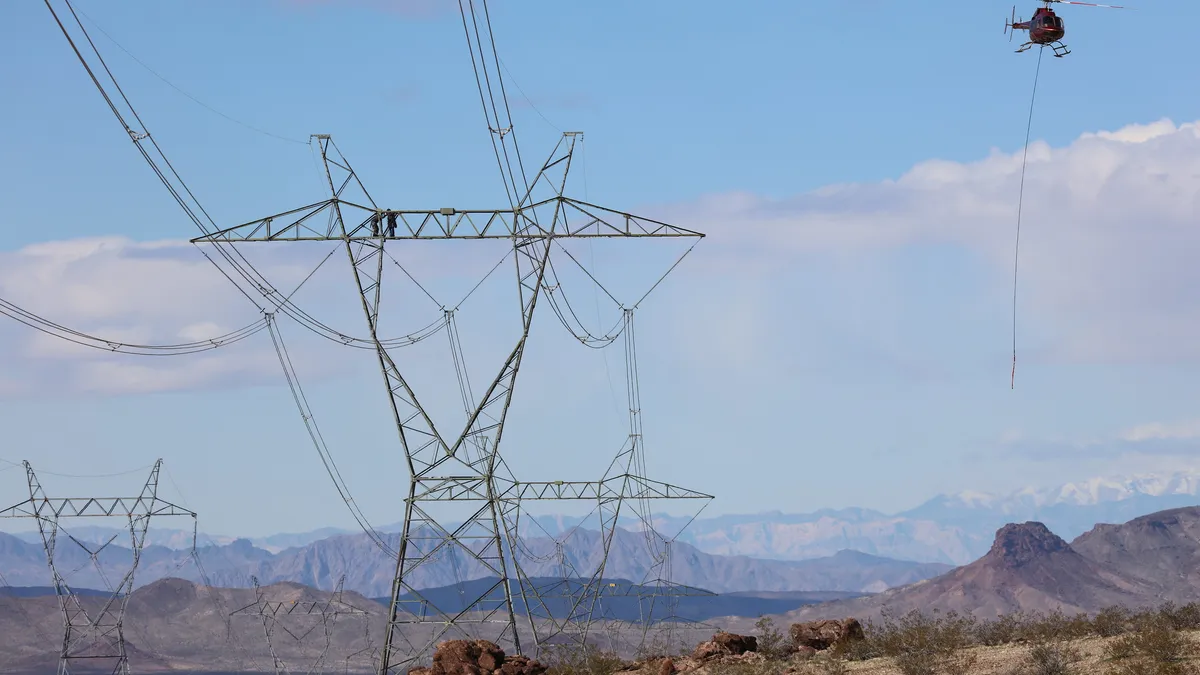Dive Brief:
- The Arizona Corporation Commission on Wednesday approved a 575-MW expansion of Salt River Project’s Coolidge Generating Station, a year after denying the project because of its potential impacts on the nearby historically-Black community of Randolph.
- SRP won community support for a slimmed down expansion — however, by doubling its commitment to invest in Randolph, reducing the number of gas turbines to be added and committing to not adding future gas-fired capacity at the site.
- The Sierra Club remains opposed to the project and accused the utility of “manipulating established processes to get their way.” The settlement includes substantial changes to the project, meaning additional review is required, the group said in comments filed Tuesday.
Dive Insight:
In a June 14 filing with the ACC, utility officials outlined changes to the proposed expansion as well as additional commitments to bring the community on board.
SRP agreed to reduce the number of new generating units from 16 to 12, and move the units slightly farther away from the community. Along with a commitment to not add future gas generation at the site, SRP said it agreed to a “capacity factor limitation of 30% averaged across the 12 new units.”
The Coolidge project was originally proposed as an 820-MW expansion.
The settlement also “provides significant additional benefits to improve conditions in the Randolph community,” the utility said.
SRP added more than $12 million to its commitment to invest in the community, bring the total to $23.75 million. New commitments now include a home rehabilitation program for 60 homes with a cap of $25,000 per home that will be managed by a “mutually acceptable reputable third party like Habitat for Humanity.”
The ACC voted 4-1 to approve the expansion.
"We are grateful to the Randolph community for the opportunity to listen to and address their concerns," Bobby Olsen, SRP associate general manager and chief planning, strategy and sustainability executive, said in a statement.
The Coolidge expansion is necessary “as we respond to dramatic load growth in the state of Arizona,” Olsen added. “Flexible, fast ramping generation is critical to meet this obligation.”
Some observers say the utility has not shown a need for the new plant, which was not included in an integrated resource plan, according to Tierra Strategy CEO Autumn Johnson.
After “2 years, a full hearing, 2 no's at the ACC, 1 no in court, and SRP gets what they wanted all along and the Randolph attorney gets almost a quarter million dollars,” Johnson tweeted.
After denying SRP’s application in April of 2022, regulators denied rehearing in May 2022 and the Maricopa County Superior Court affirmed the ruling in January.
Johnson served as co-counsel with Randolph attorney Dianne Post for a portion of the case last year. She filed comments with the ACC opposing Post’s compensation included in the settlement, saying she joined Post on the case because she was told the work was being done on a volunteer basis.
SRP’s filing says the utility agreed to reimburse attorneys’ fees up to $221,000. In an email, Post defended the payment.
“It is common practice for those doing human rights cases to do it pro bono and in the retainer that the client signs to say that if fees are collected from the wrongdoer, the attorney gets paid from that,” Post said.
According to the Sierra Club’s June 20 filing, ACC approval of the project decision is “unlawful” because SRP asked the commission “to approve a substantially different project than what SRP originally proposed” in its 2021 application.
"What we've seen is that utilities will consistently act in their own interest as opposed to what is best for the public, manipulating established processes to get their way," Sandy Bahr, director for the Sierra Club's Grand Canyon Chapter, said in a statement.














